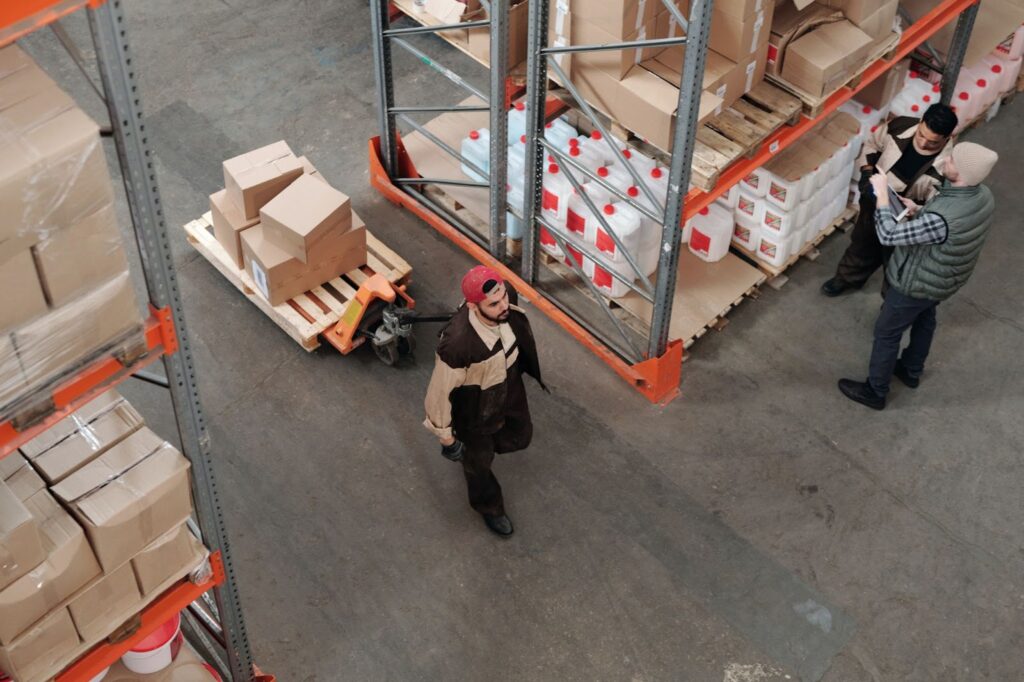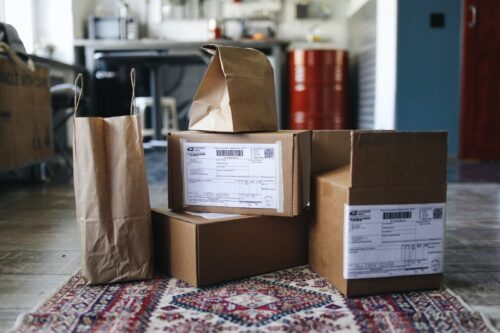Delivered Duty Paid: Meaning, Importance, and Process

The international shipping process is made up of multiple methods, including order placement and fulfillment, shipment, export, import, order notification, and delivery or return. Incoterms are rules that govern the shipment of goods between countries.
This allows people to ship and receive items worldwide while still meeting local and federal shipment requirements. Buyers and sellers should be aware of the different processes, so they can choose the one that works best for their shipment and delivery needs. There are many ways to handle international shipping, with delivery duty paid (DDP) being one of the most common.
Understanding DDP can help you prepare for international shipments as a seller or buyer.
What Does Delivered Duty Paid Mean?
DDP is an agreement in which a seller assumes the responsibilities and risks of transporting goods internationally. This means the seller assumes all costs for the delivery, including customs, taxes, and fees. DDP is just one method available to sellers when delivering goods.
While DDP shipping comes with some risks for the seller, it is one of the most common methods of transporting goods internationally. Many customers have come to expect the seller to cover all customs clearance formalities and international trade terms in their delivery agreement.
Why is DDP Shipping Important?

DDP is important to international trade. DDP, and other incoterms used in international shipping, provide buyers and sellers all over the world a universal language. For the seller, DDP rules are important to avoid expensive mistakes. A DDP agreement means the seller holds the majority of responsibility for the goods.
DDP shipping is also important because it encourages trust and minimizes risk for buyers. Many customers expect sellers to cover all shipping and delivery costs. DDP protects the buyer and ensures safe delivery by holding the seller responsible for all customs and fees and providing a generic method of shipping goods.
A DDP agreement requires the seller to hold the responsibility for goods until they reach the buyer. This limits the buyer’s risk despite buying goods internationally. DDP protects buyers from surprise fees and damaged goods. Once the DDP shipment reaches the buyer’s country and destination port, the risk transfers to them.
The Role of the Seller
The seller assumes primary responsibility for the shipment of goods during international trade. The seller typically has more local knowledge of shipping rules and regulations, which can ensure goods reach their intended destination. Efficient, speedy arriving means a better customer experience.
The seller is responsible for all tasks included in a DDP agreement, which include:
- Providing goods
- Creating a sales contract
- Meeting all custom requirements
- Scheduling and paying for transportation
- Covering licensing fees
- Covering shipping costs
- Managing all export and import duty fees
- Paying for shipping insurance
- Arranging for proof of delivery
- Notifying buyer of order status
The Role of the Buyer
The role of the buyer in DDP is minimal. The buyer is responsible for unloading the goods, and the risk transfers to them once they receive them. The buyer’s risks are limited with DDP incoterms since the seller assumes all the costs. The roles of the buyer in a DDP include:
- Payment of goods
- Assisting sellers with any document needed to clear customs
- Requesting a refund or return promptly
DDP Delivery Process

The seller manages most of the import formalities from the initial shipment of goods to the final delivery to the buyer’s address. This is what you can expect from the DDP process:
- The seller packages and prepares the goods for shipment. This includes preparing invoices and customs documentation requirements.
- The seller chooses an international delivery carrier. They provide them with import and export licenses and review all international commercial terms.
- The seller delivers the package to a delivery partner, where it’s shipped by sea or air freight.
- The goods arrive at their destination. Import and export clearances vary depending on the country. Some goods may experience delays, which could lead to additional shipping or customs fees.
- Customs may add value added taxes (VAT) to inbound shipments. The seller incurs any VAT fees.
- A local delivery partner delivers the package to the buyer’s place. The buyer now assumes all risk.
Import Clearance DDP
All international goods must clear customs before reaching their intended destination. DDP includes customs import clearance, which means the seller is responsible for all import and customs fees with a DDP agreement.
All products that arrive from another country must clear customs, which means they receive permission from a government agency. The seller includes customs documentation in the export packaging. Some packages may undergo extensive reviews or even inspections.
DDP Fees and Costs
The seller assumes the maximum obligation of paid costs in a DDP agreement, which includes:
- Shipping costs: Shipping costs vary depending on the carrier and distance. Sellers may also need to account for extra fees and fluctuating transportation costs.
- Import and export duties: Import clearance and export duties and requirements vary based on the country.
- Shipping insurance: Shipping insurance covers the cost of damaged goods during shipment.
- Damages of goods: Sellers may have to replace some goods. Sellers may also be responsible for any costs related to late shipments.
- Value-added taxes (VAT): Some goods may be subject to value-added taxes, which are the seller’s responsibility. Some sellers may qualify for a VAT refund, which can help with these costs.
- Storage: Storage fees are related to customs clearance and may be charged if there are shipment delays.
FAQ
Here are some of the most frequently asked questions related to delivery duty paid shipments and international import formalities:
What is an Incoterm?
An incoterm is a set of rules that guide sellers and buyers when importing or exporting goods. Incoterms rules include 11 stipulations regulated by the International Chamber of Commerce (ICC).
What’s the Difference between DDP and DDU?
Whereas DDP refers to a seller’s responsibilities when shipping goods internationally, delivery duty unpaid (DDU) refers to an agreement in which the seller is only responsible for delivering goods to the buyer’s home country. With DDU shipping, once the goods reach the intended country, the buyer is responsible for all import fees. The buyer is also responsible for pulling licenses and paying taxes and duty fees.
What’s the Difference between DDP and DAP?
Delivered at place and delivered duty unpaid are both acronyms that describe an international trade agreement in which the buyer is responsible for duty costs, taxes, and clearance fees. DDP and DAP both mean that the buyer is responsible for paying all import fees once the shipment arrives at its destination country.
